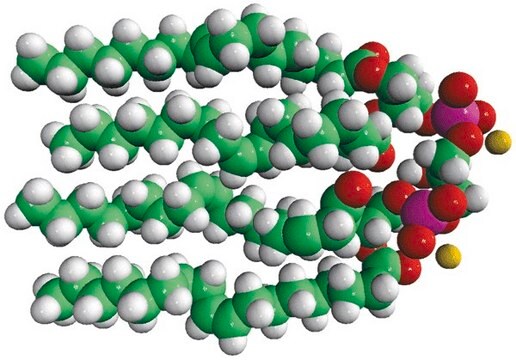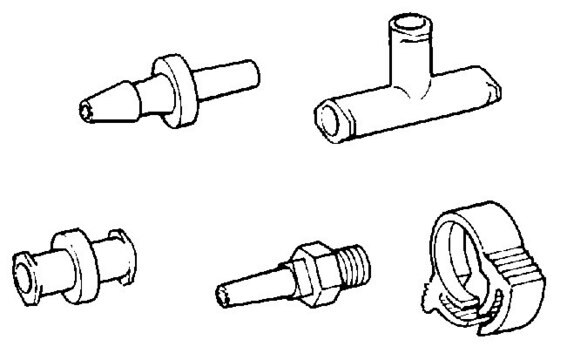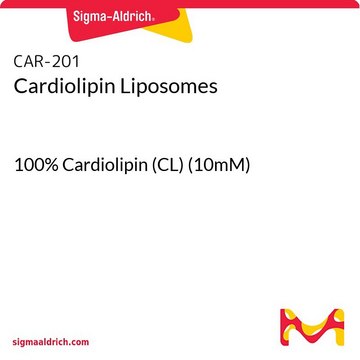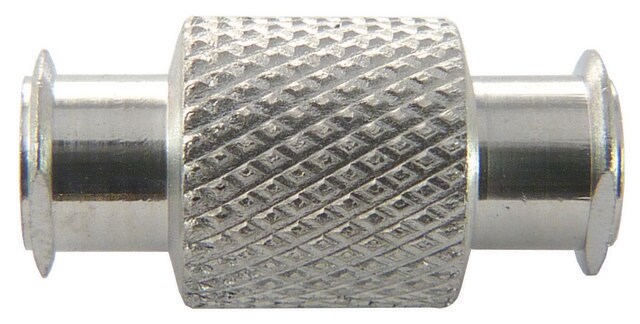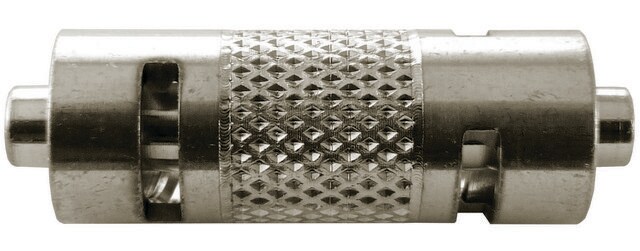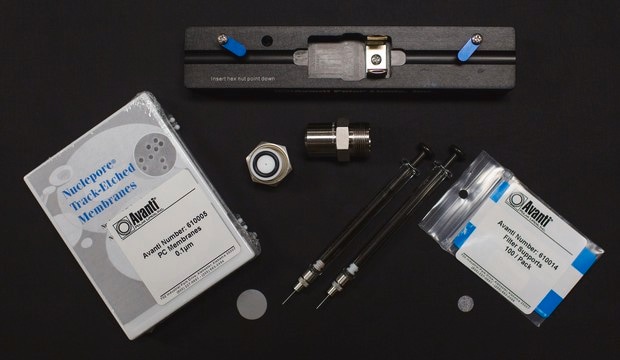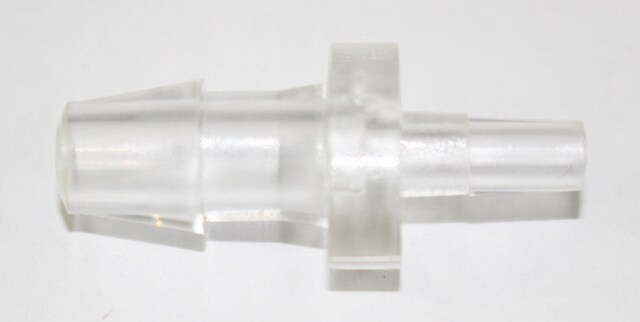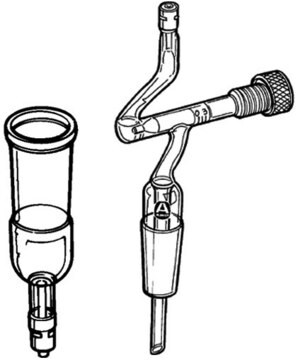CAR-202
Cardiolipin Liposomes
100% 18:1 Cardiolipin (TOCL) (10mM)
Faça loginpara ver os preços organizacionais e de contrato
About This Item
Código UNSPSC:
12352211
NACRES:
NA.25
Produtos recomendados
Nível de qualidade
composição
Phosphate buffered saline
concentração
10 mM
Impurezas
100% 18:1 Cardiolipin (TOCL)
tamanho de partícula
100 nm
pH
7.4
Procurando produtos similares? Visita Guia de comparação de produtos
Descrição geral
Liposomes are extensively used to study the interaction of proteins, peptides and other molecules with the surface of a lipid membrane.
Cardiolipin (CL) is a unique phospholipid with an interesting chemical and ultrastructural characteristics. It is a highly acidic dimer of phosphatidylglycerol (PG) and phosphatidic acid (PA) containing four acyl chains, three glycerols and two phosphate headgroups. Due to deprotonation of one of these phosphate groups, cardiolipin is negatively charged in physiological pH.
Cardiolipin (CL) is known as a mitochondria-specific phospholipid and is intimately linked to mitochondrial bioenergetic processes. It plays a functional role in mitochondrial membrane stability and dynamics, as it interacts with a number of inner mitochondrial membrane metabolite carriers, enzymes and proteins. Extensive studies of phamacological, toxicological, and therapeutic effects have shown that the incorporation of doxorubicin in cardiolipin liposomes improved antitumor activity. It has been reported that cardiolipin-containing liposomes have lower cardiotoxicity associated with doxorubicin by alteriing the pharmacokinetics and tissue distribution of the drug.
Cardiolipin is a negatively charged lipid and provides two types of binding possibilities: binding at the surface and encapsulation deep within the membrane. Our catalog of cardiolipin lipids contains many different types of saturated and unsaturated cardiolipin based liposomes made from 0.5% up to 100% cardiolipin.
Cardiolipin (CL) is a unique phospholipid with an interesting chemical and ultrastructural characteristics. It is a highly acidic dimer of phosphatidylglycerol (PG) and phosphatidic acid (PA) containing four acyl chains, three glycerols and two phosphate headgroups. Due to deprotonation of one of these phosphate groups, cardiolipin is negatively charged in physiological pH.
Cardiolipin (CL) is known as a mitochondria-specific phospholipid and is intimately linked to mitochondrial bioenergetic processes. It plays a functional role in mitochondrial membrane stability and dynamics, as it interacts with a number of inner mitochondrial membrane metabolite carriers, enzymes and proteins. Extensive studies of phamacological, toxicological, and therapeutic effects have shown that the incorporation of doxorubicin in cardiolipin liposomes improved antitumor activity. It has been reported that cardiolipin-containing liposomes have lower cardiotoxicity associated with doxorubicin by alteriing the pharmacokinetics and tissue distribution of the drug.
Cardiolipin is a negatively charged lipid and provides two types of binding possibilities: binding at the surface and encapsulation deep within the membrane. Our catalog of cardiolipin lipids contains many different types of saturated and unsaturated cardiolipin based liposomes made from 0.5% up to 100% cardiolipin.
Aplicação
Drug delivery
Lipid-protein interactions
Lipid-protein interactions
Armazenamento e estabilidade
Liposomes should never be frozen. Liposomes should be stored in the dark at 4°C, except when brought to room temperature for brief periods prior to use.
Liposomes are made under sterile conditions. If you need to take multiple aliquots out of the vial, it is advised to take extreme care in not contaminating the vial. It is recommended to handle the vial under a sterile hood to maintain the sterility of the product. Liposomes should never be frozen. Ice crystals that form during freezing will rupture the lipid membrane of the liposomes and change the size of liposomes particles.
Liposomes are made under sterile conditions. If you need to take multiple aliquots out of the vial, it is advised to take extreme care in not contaminating the vial. It is recommended to handle the vial under a sterile hood to maintain the sterility of the product. Liposomes should never be frozen. Ice crystals that form during freezing will rupture the lipid membrane of the liposomes and change the size of liposomes particles.
Informações legais
Cellsome is a trademark of Encapsula NanoSciences
Product of Encapsula Nanosciences
Exoneração de responsabilidade
For research use only
Código de classe de armazenamento
12 - Non Combustible Liquids
Classe de risco de água (WGK)
WGK 2
Ponto de fulgor (°F)
Not applicable
Ponto de fulgor (°C)
Not applicable
Escolha uma das versões mais recentes:
Certificados de análise (COA)
Lot/Batch Number
Lamentamos, não temos COA para este produto disponíveis online no momento.
Se precisar de ajuda, entre em contato Atendimento ao cliente
Já possui este produto?
Encontre a documentação dos produtos que você adquiriu recentemente na biblioteca de documentos.
Nossa equipe de cientistas tem experiência em todas as áreas de pesquisa, incluindo Life Sciences, ciência de materiais, síntese química, cromatografia, química analítica e muitas outras.
Entre em contato com a assistência técnica